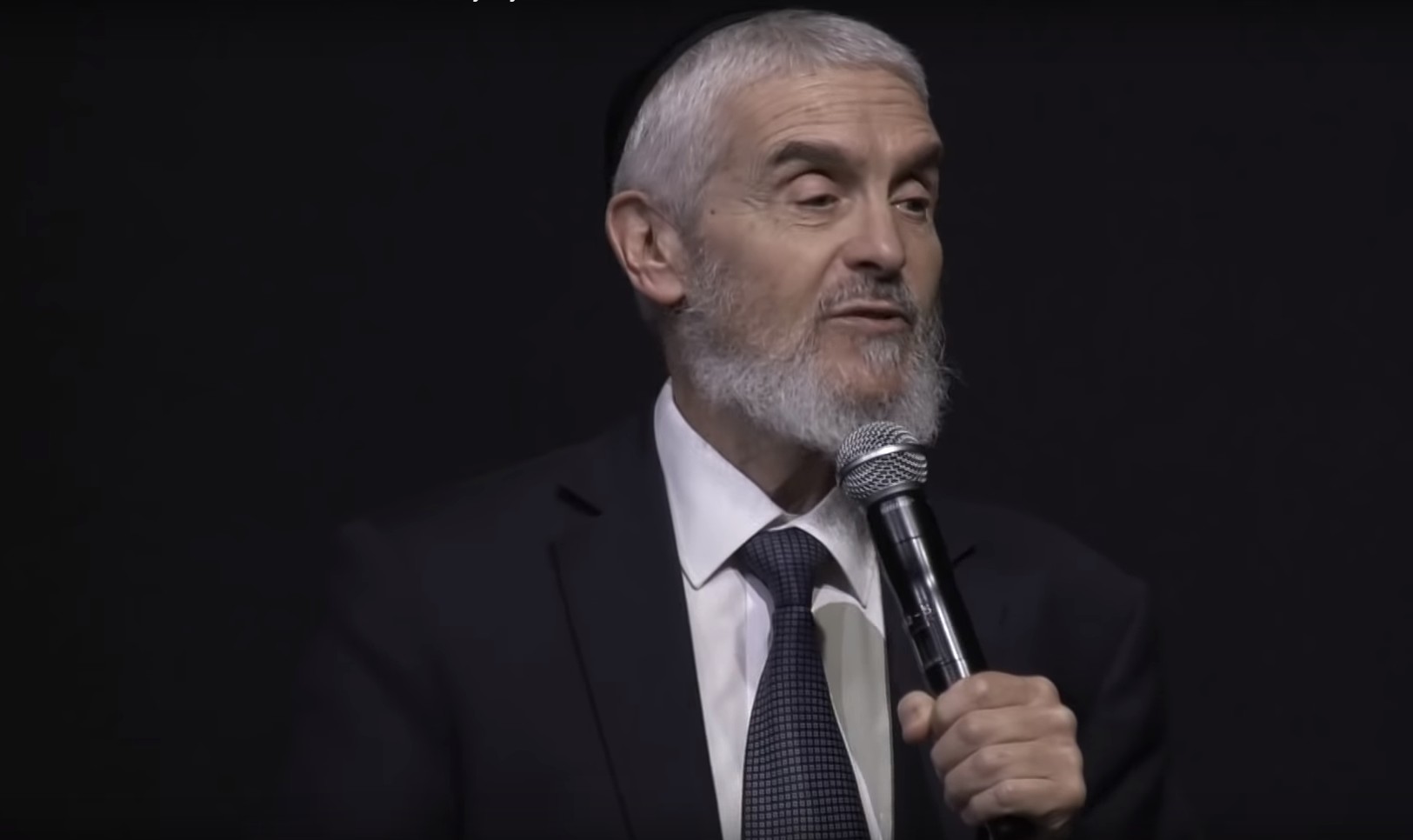
It is commonly understood that Abraham’s major contribution was the doctrine of monotheism. He taught an idolatrous world that there is only one God, and that idea is synonymous with Judaism. But that picture is not accurate – the idea of one God was very firmly established before Abraham.
Think about this: Abraham lived at the same time as Noah; he was fifty-eight years old when Noah died. Noah certainly knew God; he spoke to Him directly. Noah’s life overlapped with those of a number of people who had known Adam personally (Methusela, for example). So Abraham lived contemporaneously with Noah, who was a contemporary of people who had met Adam – can you imagine that at that stage of history people had forgotten about God?
Another question: at the time that Abraham came on the scene, there was already a yeshiva teaching Torah – the yeshiva of Shem and Ever (Shem was Noah’s son). Now if there was a yeshiva where great people were teaching the Torah of one God before Abraham, how can one think that Abraham initiated the awareness of God when it is obvious that that awareness had not been forgotten and was being propagated at the highest level?
So what did Abraham bring to the world as the amazing novelty that started the Jewish people and changed history forever, if Shem and Ever were already teaching spirituality at the highest level? What exactly was new about him? What was the revolutionary nature of his enlightenment if others had already shown the way? Why was he a groundbreaking initiator and not simply a talented pupil?
The answer is this: Abraham did not begin the path of the spirit; he began the path of bringing spirit into flesh. His contribution was not in the sphere of knowledge. Others had already explored the higher reaches of the spirit and were well versed in the highest wisdom when Abraham began his journey. What he pioneered in the world was the process of bringing that wisdom down into the physical, showing how to express the highest level of consciousness in fingers and toes of flesh. That is the radical idea of Judaism.
The absolute uniqueness of Judaism is not its God-consciousness; it is the teaching that the body can be drawn up into sanctity. It is not the teaching of the holiness of spirit, it is the teaching of the holiness of the physical. Examine the world’s spiritual systems; you will see that they grasp the conflict between spirit and flesh, the primal battle between soul and body in which body seeks to dominate soul and bring it down to serve its animal agenda. And they define a solution to this most basic of all conflicts: abjure the flesh, discipline the body by starving it of its sensuous feed, become an ascetic, celibate, enter the monastic mode. The highest exponents of the world’s spiritual systems are monks and nuns, celibates and ascetics who have renounced the body in order to transcend it.
But Judaism requires engaging the body; requires marriage, requires the experience of bodily pleasure, regards permanent celibacy as a sin. Our path is not to separate body and soul but to engage the body and elevate it to the level of soul. For us, the body is not the point of departure for the spiritual voyage; it is the vehicle.
The body must not be left behind while mind and spirit transcend. It must be made to serve mind and spirit. And that is the meaning of the mitzvot, the commandments. The mitzvot are physical actions (there are very few mitzvot that are performed in consciousness alone) that express spirit. Every part of the body is commanded to act; each limb and organ performs an action that expresses Torah. Mitzvot are to Torah what body is to soul.
Abraham did not bring the idea of pure spirit to the world; he brought to the world the radical idea that the body, that fallen, subversive, treacherous and lecherous body can and must be elevated to purity. Its functions and actions are not to be suppressed, they are to be expressed as holy. The world perceives the shame and the problem of male-female intimacy, its potential to erode spiritual refinement; we perceive its holiness. The world perceives the danger of alcohol, its tendency to replace mind with earthy physicality; we use it for elevation. The world understands that the body must be renounced, that is the only way to free the soul; we give the body full expression in actions that are harnessed to serve spirit. That is how we discipline the body; we do not command it to be silent, we command it to serve. That is the basis of the mitzvot.
What was new about Abraham? His novel teaching was the idea that the body can be lifted out of its fallen state of opposition to spirit in becoming the loyal and fully controlled vehicle for spirit. He brought to the world not the idea of Torah so much as the idea of mitzva.
(The numerical value of the name Abraham is 248; that is the number of positive mitzvot and that is the number of human bodily parts. I am sure you see now why these equivalences must be.)
When Jacob meets Esau on his way home, after many years of living with Laban and remaining pure, untainted by Laban’s brand of evil, he announces to Esau: “I lived with Laban…” “I lived” (garti) has the numerical equivalent of 613, the number of mitzvot. Jacob was implying that he had lived with Laban and despite that spiritually hostile environment he had kept all the commandments. But there is a subtlety to note here: Jacob did not simply imply that he had remained pure, untainted. The focus of his statement is the commandments, specifically. That was the challenge; that was where the battle had been: do you live with Laban and forget to bring the spiritual down into the physical, floating in the higher realms of mind while acting treacherously, or do you maintain your consistent bringing down of mind and spirit into action in the expression of the commandments? That is the work of a child of Isaac and a grandchild of Abraham. Jacob’s success in a world of evil was not only the continual learning of Torah; it was the continual practice of mitzvot.
We are children of Abraham because we work to sanctify our bodies; what marks us off from the community of the world’s wise and moral adepts is primarily the way we eat our food and drink our wine.
Torah is inextricably bound up with its mitzvot. The highest wisdom must come into the lowest part of the body. (Consider the name Jacob: Yaakov is written as a yud, the letter that always indicates pure spirit, followed by the word ekev, meaning the heel. Our task is to bring that dimensionless point of origin into the least sentient and lowest part of the physical frame.)
That is what mitzvot are about – the connecting of spiritual and material.
In “The Path of the Just,” the classic Torah work on the path to sanctity, the highest of the ten stages of ascent is described like this: “The physical actions of the individual who has sanctified himself with his Creator’s sanctity become literally sacred. He is as if walking in the next world while yet in this one… a person such as this is considered as a sanctuary…”





